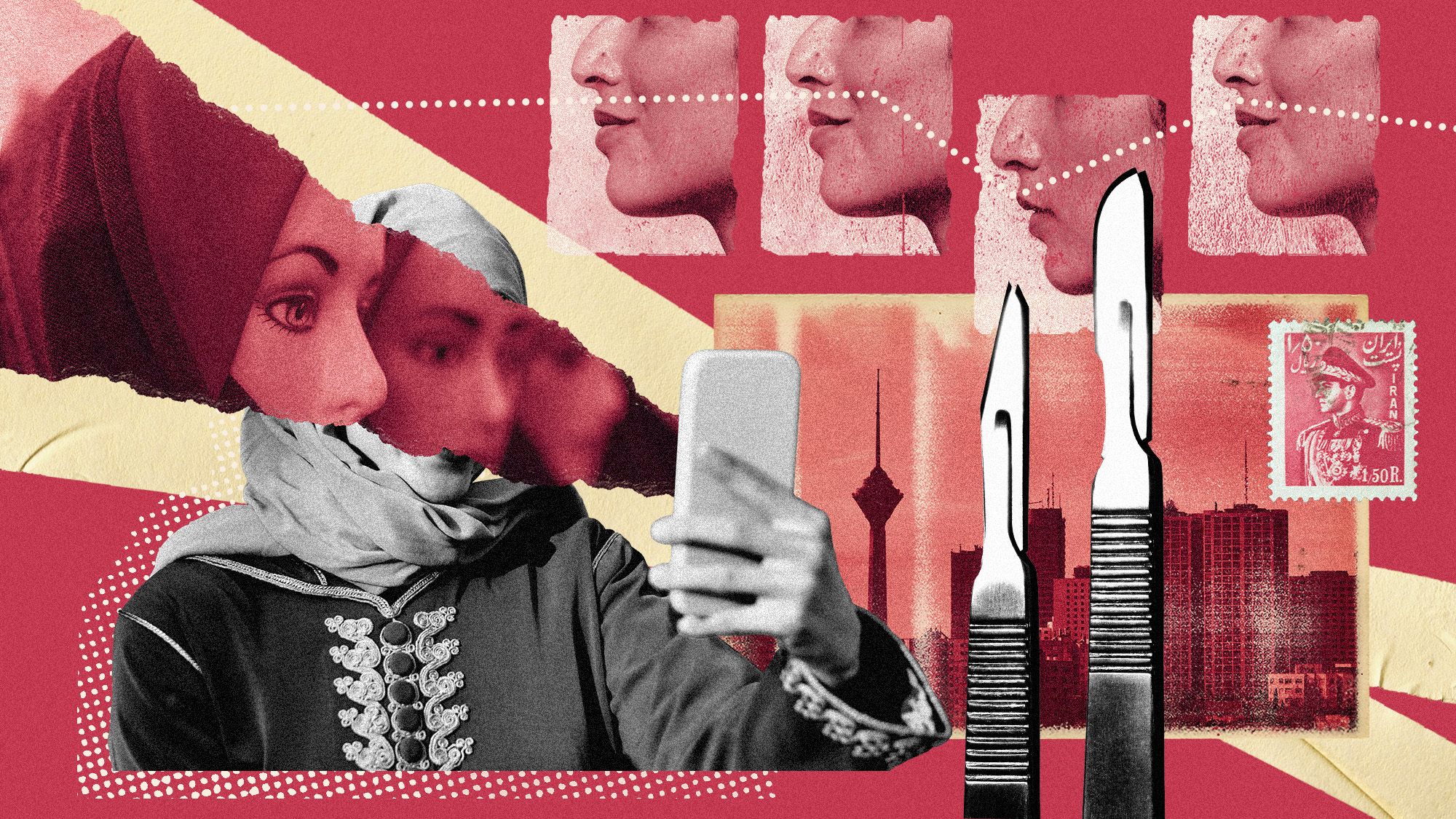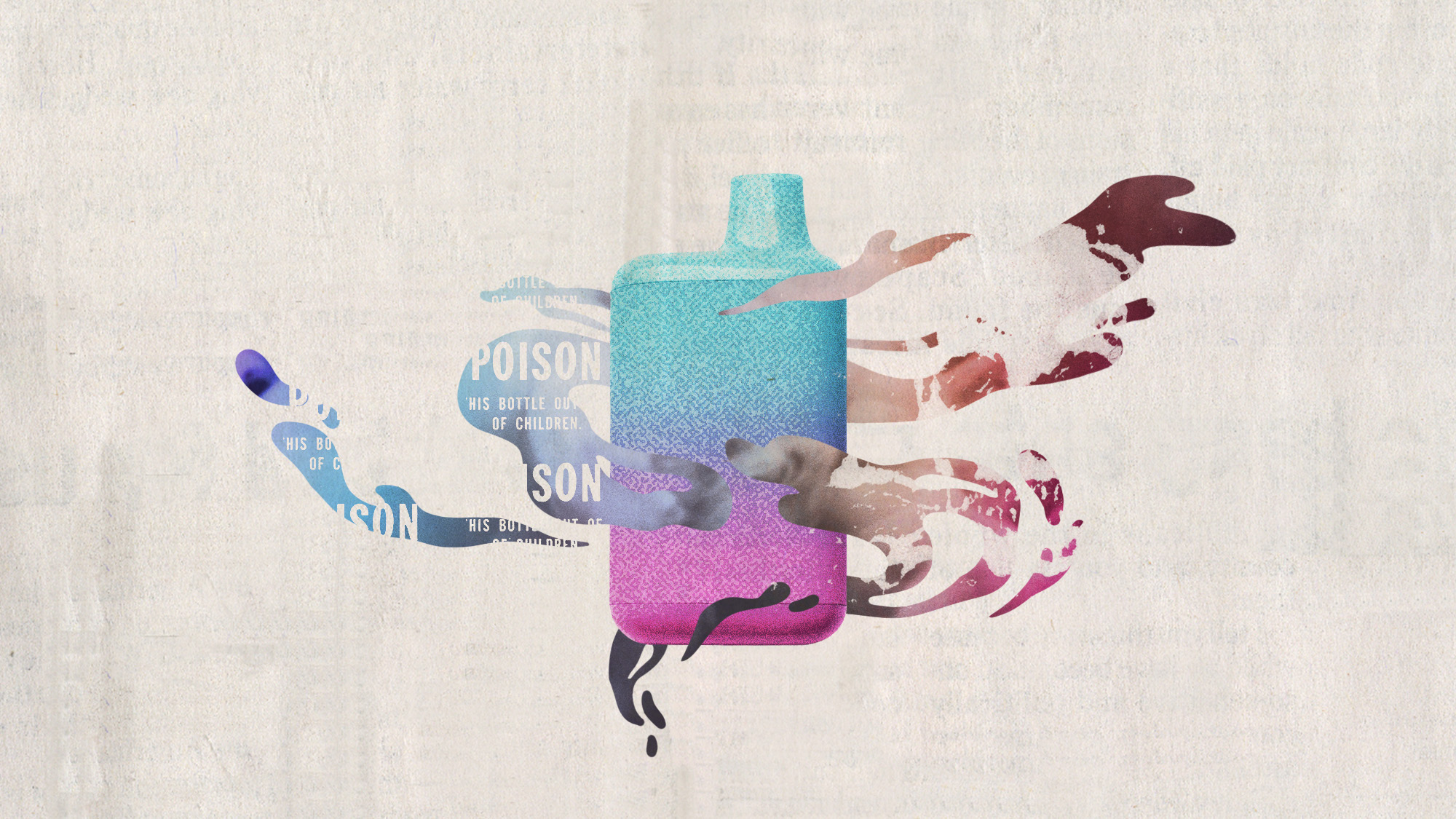How Tehran became the world's nose job capital
Iranian doctors raise alarm over low costs, weak regulation and online influence of 'Western beauty standards'

A free daily email with the biggest news stories of the day – and the best features from TheWeek.com
You are now subscribed
Your newsletter sign-up was successful
A sharp rise in cosmetic surgery procedures is alarming doctors in Iran, with the mostly female clientele citing insecurities fuelled by social media and the attraction of perceived prettiness.
"The authentic Iranian face is being distorted through invasive procedures," Babak Nikoumaram, chair of the Iranian Society of Plastic and Aesthetic Surgeons (Isaps), told the Financial Times' Bita Ghaffari in Tehran. "Incongruous western beauty standards are forced upon Iranians."
In the global ranking of cosmetic procedures, the Islamic Republic jumped from 18th in 2016 to 12th in 2022. About 320,000 surgical and non-surgical procedures were performed in 2022, said Isaps, with rhinoplasties – or nose jobs – the most common.
The Week
Escape your echo chamber. Get the facts behind the news, plus analysis from multiple perspectives.

Sign up for The Week's Free Newsletters
From our morning news briefing to a weekly Good News Newsletter, get the best of The Week delivered directly to your inbox.
From our morning news briefing to a weekly Good News Newsletter, get the best of The Week delivered directly to your inbox.
But the figures are "the tip of the iceberg", said Nikoumaram, because doctors do not have to file official records. The true number of procedures would likely put the country in the top five globally, he said.
'Nose job capital of the world'
Since the Islamic revolution in 1979, Iran has been one of the world's leading centres for cosmetic surgery.
In 2013, it had the highest rate of nose jobs in the world, according to The Guardian, with mostly women going to cosmetic surgeons each year to reduce the size of their nose and "make the tip point upwards". Tehran boasted more rhinoplasty procedures per person than even LA, an ITV report found in 2016.
The strict dress codes for women even fuel the industry, one of the country's top plastic surgeons told NBC News in 2016. An exposed face takes on more importance when women are required to cover the hair and body, he said.
A free daily email with the biggest news stories of the day – and the best features from TheWeek.com
But the repressive, brutal regime has pushed back. In 2018, Iran's parliament threatened to imprison and flog citizens opting for "un-Islamic" cosmetic surgeries. The country had been "rocked by a number of horror-stories about surgeries gone wrong", The Telegraph reported.
'Rapid industry growth'
Procedures "once largely confined to the affluent and middle-aged" have now "become mainstream", said the FT. "Rapid industry growth, unbridled advertising and a rising number of unqualified practitioners have worried senior plastic surgeons."
Many Iranians are "so fixated" with rhinoplasties that the "Persian 'nose job'" has entered the surgical lexicon, said Fair Observer. "Even though Iran is ruled by puritanical mullahs who do not allow women to reveal even their hair, the Iranian veneration for beauty continues," said Atul Singh, editor-in-chief. The "ideal of Aryan beauty" remains strong.
Beauty bloggers are extraordinarily popular. Some women told the FT that social media and the normalisation of perfection had left them feeling insecure. Beauty also carries social and economic cache; one woman said attractive women "get approached with better marriage proposals and land better jobs".
Iran has also emerged as "a leading hub for medical tourism", said Tehran Times. People are attracted by the weak regulation, low costs and perceived high expertise.
In 2022, 8.5% of cosmetic surgery clients came from outside Iran, said Isaps: about 1.2 million people from 164 countries, one official told the paper.
But the industry's dangers are not confined to Iranian citizens. In 2021, British hairdresser Louise Smith died following complications from cosmetic surgery in Iran, said the Daily Mail. Her family said they were "in the dark" over the circumstances.
Harriet Marsden is a senior staff writer and podcast panellist for The Week, covering world news and writing the weekly Global Digest newsletter. Before joining the site in 2023, she was a freelance journalist for seven years, working for The Guardian, The Times and The Independent among others, and regularly appearing on radio shows. In 2021, she was awarded the “journalist-at-large” fellowship by the Local Trust charity, and spent a year travelling independently to some of England’s most deprived areas to write about community activism. She has a master’s in international journalism from City University, and has also worked in Bolivia, Colombia and Spain.
-
 Political cartoons for February 15
Political cartoons for February 15Cartoons Sunday's political cartoons include political ventriloquism, Europe in the middle, and more
-
 The broken water companies failing England and Wales
The broken water companies failing England and WalesExplainer With rising bills, deteriorating river health and a lack of investment, regulators face an uphill battle to stabilise the industry
-
 A thrilling foodie city in northern Japan
A thrilling foodie city in northern JapanThe Week Recommends The food scene here is ‘unspoilt’ and ‘fun’
-
 Epstein files topple law CEO, roil UK government
Epstein files topple law CEO, roil UK governmentSpeed Read Peter Mandelson, Britain’s former ambassador to the US, is caught up in the scandal
-
 Mexico’s vape ban has led to a cartel-controlled black market
Mexico’s vape ban has led to a cartel-controlled black marketUnder the Radar Cartels have expanded their power over the sale of illicit tobacco
-
 Iran and US prepare to meet after skirmishes
Iran and US prepare to meet after skirmishesSpeed Read The incident comes amid heightened tensions in the Middle East
-
 Which way will Trump go on Iran?
Which way will Trump go on Iran?Today’s Big Question Diplomatic talks set to be held in Turkey on Friday, but failure to reach an agreement could have ‘terrible’ global ramifications
-
 Israel retrieves final hostage’s body from Gaza
Israel retrieves final hostage’s body from GazaSpeed Read The 24-year-old police officer was killed during the initial Hamas attack
-
 China’s Xi targets top general in growing purge
China’s Xi targets top general in growing purgeSpeed Read Zhang Youxia is being investigated over ‘grave violations’ of the law
-
 Panama and Canada are negotiating over a crucial copper mine
Panama and Canada are negotiating over a crucial copper mineIn the Spotlight Panama is set to make a final decision on the mine this summer
-
 Iran unleashes carnage on its own people
Iran unleashes carnage on its own peopleFeature Demonstrations began in late December as an economic protest